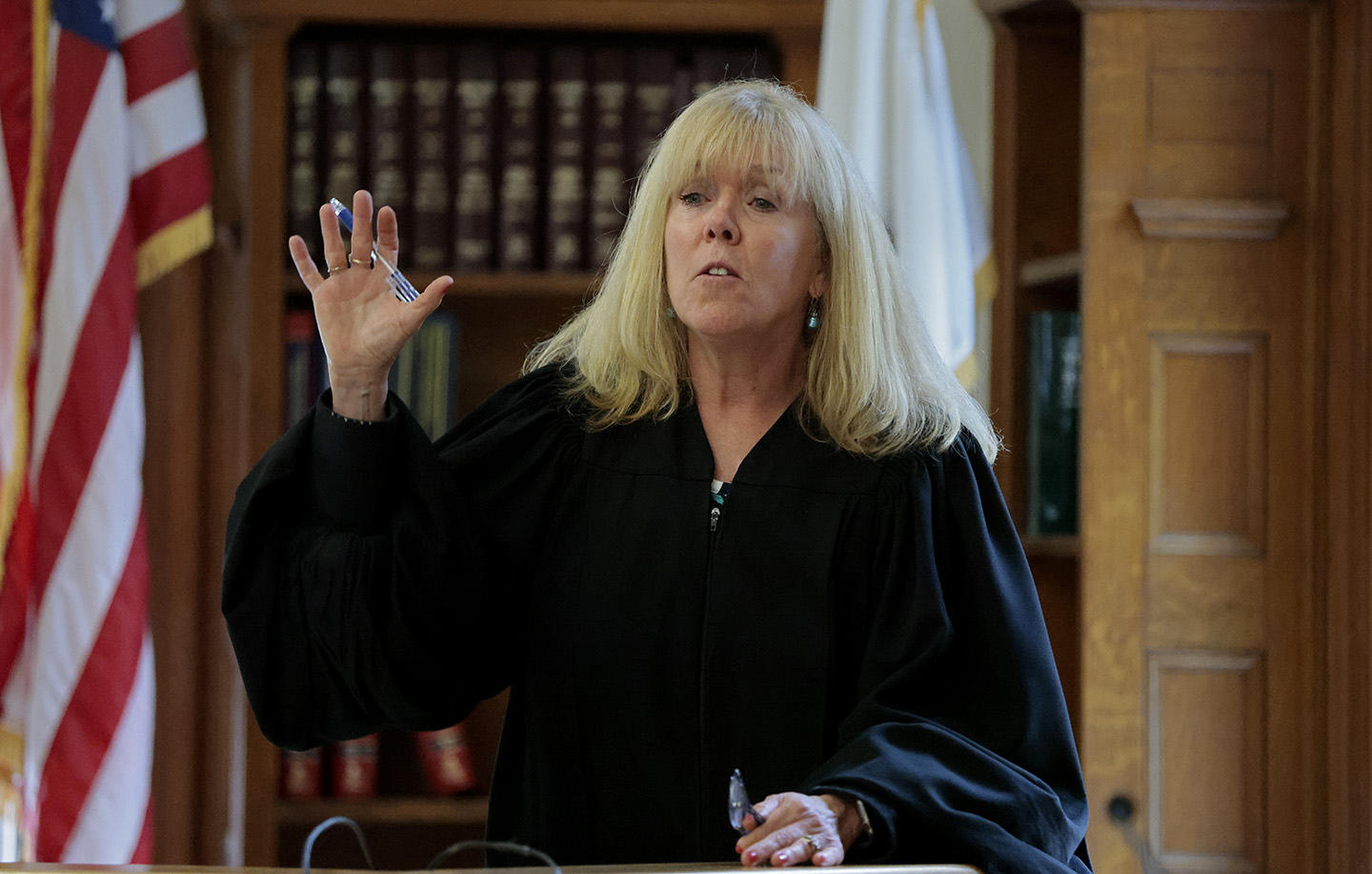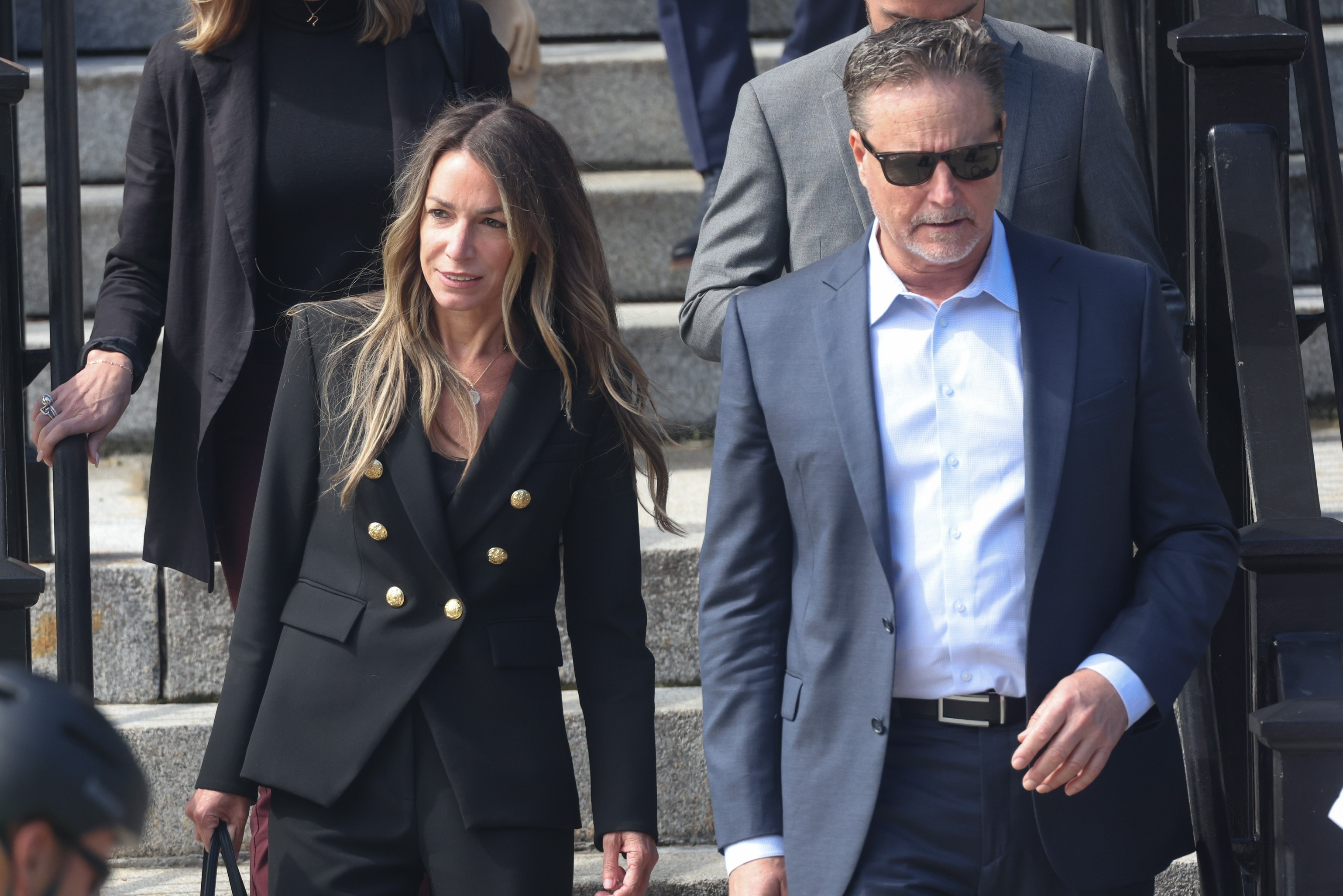There's still no verdict in the Karen Read murder trial.
Read is charged with second-degree murder in the January 2022 death of her boyfriend, Boston Police Officer John O'Keefe. She’s accused of dropping him off at another officer's house party in Canton, Massachusetts, after a night of drinking, and then hitting him with her SUV and leaving him to die in a snowstorm.
WATCH ANYTIME FOR FREE
>Stream NBC10 Boston news for free, 24/7, wherever you are. |
Her defense team argues she was framed, and that the evidence shows O’Keefe was beaten up by someone else inside the house, bitten by a dog and left outside.
Watch the Karen Read trial live on nbcboston.com, NECN, NBC Boston streaming platforms (including Roku, Peacock and Samsung TV) and NBC10 Boston's YouTube page. Every night of the trial at 7 p.m., come back for analysis and more.
Email questions to canton.confidential@nbcuni.com.
Get updates on what's happening in Boston to your inbox. Sign up for our >News Headlines newsletter.
The jury convened again Friday for their fourth day of deliberations — clearly taking their time to review all the evidence in the case before making their decision.
After about three hours of deliberation, the jury submitted a note to the judge saying that "despite our exhaustive review and diligent consideration we have been unable to reach a unanimous verdict."
Assistant District Attorney Adam Lally argued that given the length of the trial and the fact that jurors had several early days this week, he does not believe they have spent enough time deliberating.
Defense attorney David Yannetti, however, argued that the jurors have been working nonstop and with a weekend approaching they should be given guidance using the Tuey-Rodriguez model, a special set of instructions often read to deadlocked juries.
But Judge Beverly Cannone ultimately ruled that the jurors had not deliberated enough, with multiple shortened days, especially given that the trial lasted nearly two months and included 74 witnesses. She brought the jurors back into court and ordered them to continue their deliberations.
They continued deliberating until about 4:15 p.m., at which time Cannone dismissed them for the weekend. They're set to return to court to continue their deliberations at 9 a.m. Monday.
"Clearly, they're saying they're at loggerheads," Boston defense attorney Douglas Louison said Friday. "The message is they have not been able to reach a verdict, which is slightly different than 'We are hopelessly deadlocked,' which is really the standard for the judge to declare a mistrial due to a hung jury."
Louison says a hung jury would be considered a victory for Read.
"Not getting a guilty verdict is a win when you're playing defense in a criminal case," he said.
On the flip side, it would be a blow for prosecutors.
"Their only goal is to get a conviction, and if they finish without a conviction, there's no way you can spin that as a win," he said. "They didn't lose, but they didn't win."
While many legal analysts thought there would have been a verdict by now, others say it's not surprising the jury has taken this long.
They say there could be a multitude of factors — from a holdout for guilty or not guilty, to a group of jurors just wanting to make sure they've examined all the evidence and not missed anything that could sway their decision either way.
After all, this is a second-degree murder case, and juries tend to take their responsibility very seriously. Add to that, the fact that getting 12 people to come to a unanimous decision on anything can be difficult.
Criminal defense attorney Peter Elikann says after more than 70 witnesses and nine weeks of testimony, these jurors have a lot to sift through to reach a verdict.
"Keep in mind, we've all been talking about this case, gossiping. The jury has never been able to talk about this at all. They're forbidden to chat about this case, and this is the very first time they're sitting in a room, the 12 of them, and going over the evidence, and chatting. They must just be ready to explode with all this pent in them for the last nine weeks," said Elikann.
Looking at other high-profile cases in Massachusetts, they've varied in length of deliberations.
For example, in the Aaron Hernandez trials, he was found guilty of killing Odin Lloyd after about 36 hours of deliberations. But he was found not guilty of killing Safiro Furtado and Daniel de Abreu in roughly the same amount of time.
Emmanuel Lopes was found guilty of killing a police officer and a bystander after a week of deliberations, and that happened after his first trial ended with a hung jury.
And Adam Montgomery, who was convicted of killing his daughter Harmony, was found guilty in just eight hours.
Suffolk University Law School professor Chris Dearborn says it's hard to know what's going on it that jury room, and even harder to determine whether that signals a guilty or not guilty verdict.
"One possibility is they're just really taking this seriously. They were together for six weeks. They heard a lot of evidence. They want to get it right. And I think that's a good sign for the system when they do that," said Dearborn. "It's also possible that they're caught up on one kind of piece of evidence. There may be one or two holdouts from whatever the majority position is, and they're trying to work all that through."




